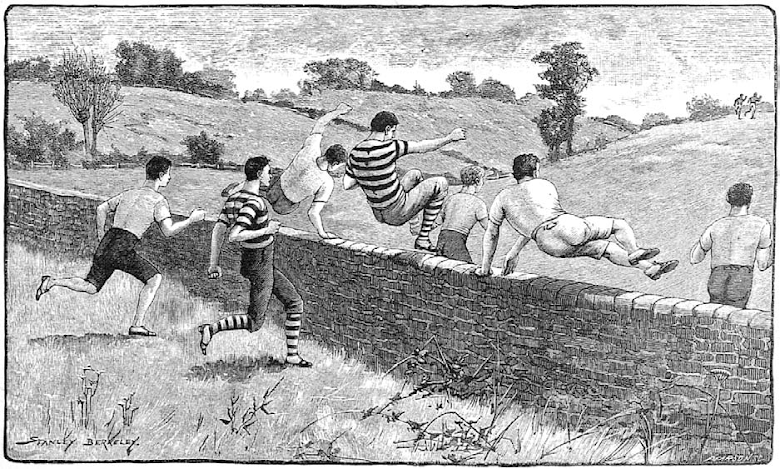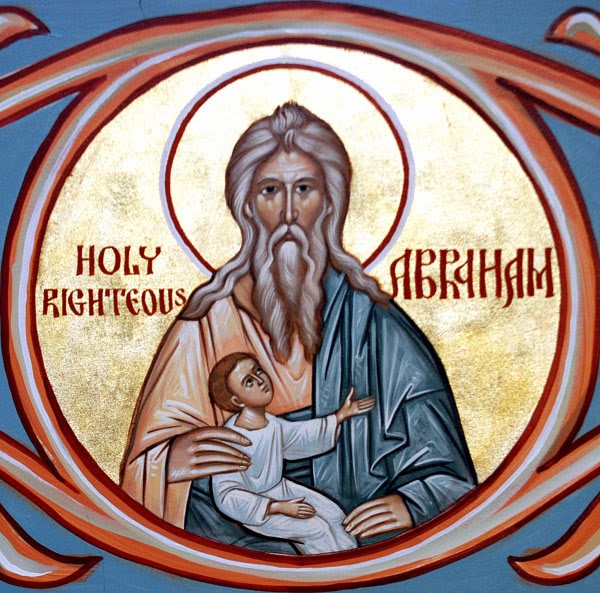"Ride Like The Wind" is a classic and tells the story of a condemned man on the run to Mexico. The storyline is one not often heard on Adult Contemporary radio, but the precise instrumentation and soaring background vocals, which were provided by Michael McDonald, helped make the song a big hit. What you probably didn't know about the song: Christopher Cross was on acid when he wrote the lyrics. "We were living in Houston at the time, and on the way down to Austin to record the songs, it was just a beautiful Texas day, I took acid. So I wrote the words on the way down from Houston to Austin on acid." Speaking about his inspiration for the outlaw theme in this song, Cross told us: "I grew up with a lot of cowboy movies. Serials and stuff, like The Lone Ranger and these cowboy serials where they were always chasing the bad guy. And I lived in San Antonio near Mexico, so there was always this anarchistic allure about if you could get to Mexico, you could escape the authority. Also, Mexico was a place where you could go down there and drink and do all this debauchery that as a kid, you think sounds really cool. So getting to the border in Mexico was a fascinating thing to me." It was covered by Saxon on their 1988 Destiny Album.
It is the night
My body's weak
I'm on the run
No time for sleep
I've got to ride
Ride like the wind
To be free again
I was born the son
Of a lawless man
Always spoke my mind
With a gun in my hand
Lived nine lives
Gunned down ten
Gonna ride like the wind
And I've got such a long way to go
To make it to the border of Mexico
So I'll ride like the wind
Ride like the wind
Accused and tried and
Told to hang
I was nowhere in sight
When the church bells rang
Never was the kind
To do as I was told
Gonna ride like the wind
Before I get old
And I've got such a long way to go
To make it to the border of Mexico
So I'll ride like the wind
Ride like the wind
So I'll ride like the wind
Ride like the wind
It is the night
My body's weak
I'm on the run
No time for sleep
I've got to ride
Ride like the wind
To be free again
And I've got such a long way to go
To make it to the border of Mexico
So I'll ride like the wind
Ride like the wind
And I've got such a long way to go
To make it to the border of Mexico
So I'll ride like the wind
Ride like the wind
It is often said that Christianity is a religion of GRACE, which is certainly true. We talk about GRACE, we sing about GRACE, and if anyone were to ask us, we certainly believe in GRACE, but we really don’t talk much about GRACE. Philip Yancey has said that part of our problem is the nature of GRACE itself. GRACE is very difficult for us to accept. And if you don’t believe that, think about how you react when a telephone sales person says, “I’m not trying to sell you anything. I just want to offer you a free trip to Spain.” Automatically we wonder, “What’s the catch?” because we’ve all been taught “there’s no such thing as a free lunch", which is really just another way of saying, “There’s no such thing as GRACE.” Yancey goes on to say that GRACE shocks us because of what it does. GRACE teaches us that God does for others what we would never do for them. Because, if it were up to us, we would only save the not-so-bad people. GRACE is a gift given to those who don’t deserve it and sometimes don’t even appreciate it. God is a lot more gracious than I am. He saves people I wouldn’t save if I were God. He blesses people I wouldn’t bless if I were God. He uses people in his service that I wouldn’t use if I were God. Perhaps the best description of God’s GRACE in the scriptures is found in Jonah 2:9, where we read that “Salvation is of the Lord." It’s ironic that Jonah would be the one to make such a profound statement about God’s GRACE because Jonah is probably the worst missionary of all time. He ran from God! The Saxon song "Ride like the wind" is exactly this......someone on the run, looking to get to the border of Mexico....running away from what ever is behind them....... trying to be free.
At the beginning of the book, Jonah is running away from God; at the end of the book, he’s arguing with God. In between he is praying and preaching, but he’s not the hero. God is. In the book of Jonah the fish is mentioned 4 times, the city of Nineveh is mentioned 9 times, Jonah is mentioned 18 times and God is mentioned 38 times. The book of Jonah is a book about God and about how much GRACE he has for his prodigal sons and daughters who run away from him. And as we read through the story of Jonah, we find there’s a little bit of Jonah in all of us and a whole lot of Jonah in some of us. Which is why we are all so much in need of God’s GRACE.
The story of Jonah is a true story. Contrary to the critics and the skeptics, I believe this book is historical truth. I’m sure you’ve heard the story about the little girl who was talking to her teacher in school about Jonah and the whale (and yes, I know the Bible says it was a “fish”, not a whale). The teacher said it was physically impossible for a whale to swallow a human because even though they are a very large mammal, their throat is very small. The little girl said she still believed that Jonah was swallowed by a whale. The teacher said that nobody in their right mind would believe that ridiculous story. She asked the little girl, “Just how do you explain it? The girl said, "I’m not quite sure how it happened. I guess when I get to heaven, I’ll just ask Jonah how it happened." The teacher said, "What if Jonah didn’t go to heaven?" She said, “Well then, you can ask him."
It’s certainly true that there are a lot of very UNUSUAL elements in the story of Jonah, but like that little girl, I believe that it all happened just as it is recorded in the word of God. That is, there really was a man named Jonah who really did FLEE to Tarshish, who really WAS swallowed by a great fish, who really DID survive for three days in the fish’s belly, and who ACTUALLY was vomited up on dry ground. It’s not a myth or a legend or a fable or a parable. Jonah is a TRUE STORY. We can date the book at about 765 B.C. during the days of Jeroboam, king of Israel. By the way, Jonah came from the town of Gath-Hepher. It was a little town in the northern part of Israel, in the region the New Testament calls Galilee, not far from the village of Nazareth where Jesus grew up. The story of Jonah is a short story -- only four chapters, 48 verses. You can read through the whole book in about 15 minutes. Someone has summarized the story of Jonah in this way – chapter 1 is Jonah RUNNING AWAY from God, chapter 2 is Jonah RUNNING BACK to God, chapter 3 is Jonah RUNNING WITH God, and chapter 4 is Jonah RUNNING AHEAD of God.
Jonah is one of the minor prophets, but there’s really only one prophecy in the whole book and it only takes up one sentence. Jonah is the only minor prophet JESUS mentioned by name when he said in Matthew 12:40 that the time he would spend in the grave was the same amount of time that Jonah spent in the belly of the fish.
Our story begins with these words: "Now the word of the Lord came to Jonah the son of Amittai, saying, 'Arise, go to Nineveh, that great city, and cry out against it; for their wickedness has come up before me.'" (Jonah 1:1-2). Jonah was told to go to Nineveh and “preach against it.” This was not a “GOD LOVES YOU AND HAS A WONDERFUL PLAN FOR YOUR LIFE” sermon. Go to Nineveh and PREACH against it. The time had come for God’s JUDGEMENT. Nineveh was the capital city of Assyria. It was one of the largest cities of that day. It’s estimated that it had a population of about 600,000 people in the days of Jonah. According to one record, its walls were 100 FEET HIGH and were so wide that four chariots could ride around it side by side. And inside the walls, there were great palaces and beautiful gardens. But though it was a beautiful place, it wasn’t a very nice place to live. When God said that Nineveh was WICKED, he wasn’t kidding. The Assyrians had a REPUTATION for cruelty that’s hard for us to even imagine. Whenever their armies captured their enemies, they would commit terrible atrocities. Things like skinning people alive, decapitation, mutilation, ripping out tongues. And so, it comes as no surprise that the Jews HATED the Assyrians. HATED them for their bloodthirsty cruelty. HATED them for their idolatry. For a Jewish man to be told to go preach to Nineveh was disgusting. As far as Jonah was concerned, Nineveh could go straight to HELL. “Go ahead, Lord. Push the button. Open the trapdoor. Let ‘em fall straight down into the pit.” That’s how Jonah FELT about Nineveh. But God said to Jonah, "Go PREACH to these wicked people." Even though they were terrible sinners, God wanted to REACH OUT to them. Because, as Peter said, God "is not willing that any should perish but that all should come to repentance." (2 Peter 3:9).
And so, even though he might not have wanted to, you would EXPECT that Jonah – being God's prophet – would do EXACTLY what God told him to do. When God said, “Arise, Jonah. Go to Nineveh and preach against it,” you would EXPECT the next verse to read, “And Jonah arose and went to Nineveh." But, of course, that’s NOT what happened "But Jonah arose to FLEE to Tarshish from the PRESENCE of the Lord. He went down to Joppa, and found a ship going to Tarshish; so he paid the fare, and went down into it, to go with them to Tarshish from the presence of the Lord." (Jonah 1:3). It helps to know a little bit of geography at this point. NINEVEH was about 500 miles north and east of where Jonah was. It was a MAJOR city on the banks of the Tigris River. In contemporary terms, it would be in Iraq, just outside the city of Mosul. Tarshish, on the other hand, was far to the west. It was probably in what is now called SPAIN; it was the most distant trading post of the Phoenicians. And if Jonah had SUCCEDED in getting there, he would have been about 2500 miles from Nineveh! Jonah's INTENT was to get as FAR away as he could from the spot where God told him to go. But it wasn't long before Jonah DISCOVERED that a person CAN'T really run away from God. Now I don't think that Jonah was so IGNORANT as to believe that he could actually run away from God and HIDE. But I think what he was trying to do was to run away from his RESPONSIBILITY to God. And that makes me realise that I’m a lot more like Jonah than I’d like to admit.
Because while I would never have the AUDACITY to tell God to his face, “I’m not going to do what you tell me to do”, there are a lot of times when I know what God EXPECTS me to do and I just don’t do it. And that INCLUDES my responsibility to SHARE the gospel with a community of people around us who are LOST without Jesus Christ. And so I think, “Maybe if I get involved in doing enough stuff over here, then God won’t notice that I’m totally ignoring what he told me to do.” Or maybe you’ve found that you’re RUNNING like Jonah. Not physically. You’re smart enough to know that you CAN'T run away from God. But you STOP going to all those places where you know God is. Maybe you don’t come to WORSHIP quite as often because you don’t want to be reminded of what you know God wants you to do. Or maybe you AVOID your Christian friends. Or maybe you don’t PRAY nearly as often as you ought to, because you feel guilty, and you think that somehow if you STAY away from God that he won’t notice those things going on in your life. The truth is, we’re all a LOT like Jonah.
But why was Jonah so hesitant to go to Nineveh? There are several possible reasons for his disobedience.
1. PERHAPS Jonah was afraid – he was FEARFUL for his life. After all, as I said, the Assyrians were a violent and brutal people. They were barbaric in the slaughter of their captives. In every city they conquered, the Assyrians built a pyramid of human skulls. That’s not exactly the kind of place that EVERYONE is anxious to go visit. Have you ever noticed that whenever somebody mentions mission work in nice climate and beautiful safe place, everyone wants to go with you? But, if there were a place where they KILL people and build a pyramid out of those human skulls, there’s not nearly as many people EAGER to get in line for that missionary trip. So maybe Jonah was afraid to go. But the BIBLE doesn’t tell us that he ran away because he was afraid.
2. MAYBE Jonah thought it was a LOST cause - what difference could one man possibly make? Imagine being sent to the middle of LONDON. You see all the corruption and immorality on the streets. And God says, “Start preaching. You just go up and down the streets and tell them they have 40 days to get their lives straight or I’m going to destroy this city.” I don’t know how you would react to that, but my reaction would be, “You’ve got to be KIDDING! There is absolutely NO WAY that’s going to make any DIFFERENCE.” And that’s the WAY Jonah must have felt. In the midst of this wicked city, who in the world is going to LISTEN to Jonah – some Jew who lives hundreds of miles away? “Lord, didn’t you say something about casting your pearls before swine? If ever there was a GROUP of people who qualified as swine, this was it. These people don’t care about anything of a spiritual nature – that’s OBVIOUS. There’s no sense wasting my time.” But again, the word of God doesn’t tell us that Jonah RAN AWAY because he thought it was a lost cause. HE RODE LIKE THE WIND
3. MAYBE Jonah thought the MESSAGE God gave him was a bit HARSH. And it was a harsh message, wasn’t it? “Forty days and Nineveh shall be overthrown. TURN OR BURN! Get your lives STRAIGHT with God or he’ll wipe you off the face of the earth!” Nobody likes to PREACH a message like that. Maybe Jonah wasn’t too KEEN on preaching fire and brimstone. But again, the word of God doesn’t tell us that Jonah was UNHAPPY with the message. What we are told is that, 1. Jonah didn’t CARE about Nineveh. 2. He didn’t THINK God should care about Nineveh. 3. He didn’t WANT Nineveh to repent and be saved. 4. And FINALLY, he didn’t WANT a God who loved people like that. It was perfectly OK with Jonah if God sent them straight to hell. In fact, that was his PREFERENCE. Ultimately, we’re going to see that Jonah’s PROBLEM wasn’t so much with Nineveh. Jonah’s problem was with GOD. So Jonah decided to RUN AWAY from God. He headed for Joppa where he just “happened” to FIND a boat that was going where he wanted to go. I mean, what are the chances of that? Isn’t that an AMAZING coincidence? It’s a long way from Joppa to Tarshish. It’s not like they had a boat leaving for Tarshish EVERY DAY. But when we decide to disobey God, there’s ALWAYS a boat headed where we want to go. And there is always ROOM for one more passenger. When we DECIDE to run away from God, Satan is happy to PROVIDE the transportation.
There’s one more question that I think we need to look at. How FAR will God let us go? And it appears that sometimes the answer is that God will LET us go pretty far. He doesn’t always STOP us. God could have ARRANGED things so that the ship wasn’t available that day. He could have ARRANGED things so the ship didn’t have enough room for Jonah. He could have ARRANGED things so a thief robbed Jonah of his money and he couldn’t buy a ticket. But sometimes the judgment of God is that God lets us CONTINUE so that we have to face the CONSEQUENCES of our own disobedience. I think that’s what Paul meant in Romans 1 when he said three times that “God gave them over” (Romans 1:24,26,28). When a society decides that it doesn’t need God, his response is not always to bring out the thunder and lightning. More often, God says, “I’ve warned you time and time again not to JUMP off the cliff, but if that’s what you want to do, I’m not going to stop you.” But, as we LOOK at this part of Jonah’s story, it’s IMPORTANT to see that while Jonah tried to LEAVE the Lord, the Lord NEVER left him. God was with Jonah every step of the way. God NEVER gave up on Jonah.
Remember three things: 1. EVERY act of disobeying God is a DOWNWARD step. If you notice the action in this chapter, you’ll see that Jonah went “DOWN” four times: He went “DOWN” to Joppa (v. 3). He went “DOWN” into the hold of the ship (v. 4). He went “DOWN” into the sea (v. 15). He went “DOWN” into the belly of the great fish (v. 17). I don’t think that’s a COINCIDENCE. I think it symbolises what happens when we DISOBEY God’s call. Any time you RUN AWAY from God, you never go “UP"; you always go “DOWN." 2. We tend to get away QUICKLY, but we recover SLOWLY. It’s EASY to go down, it’s EASY to get off the right path, it’s EASY to fall. But the road back is difficult and often very painful. 3. Satan can work through CIRCUMSTANCES just like God can. Satan has his SHIPS, and he always has ROOM on his ships. His ships always go where we want to go when we’re running from God. He can make DISOBEDIENCE look like the right thing to do by giving us favourable circumstances. On board that ship, Jonah may have thought, “Things are going so well for me. This must be GOD'S WILL.” But if he thought that, he was WRONG. The Lord had already made his WILL clear. No set of favourable circumstances could OVERRIDE what God had CLEARLY said. Down deep Jonah knew GOD'S WILLl. He just didn’t WANT to do it.
Now, I began this devotion by saying that the message of Jonah is a message about God’s GRACE. And you may be wondering, “Where’s the GRACE of God in this chapter?” The answer is simple. God LET Jonah disobey. He didn’t kill him on the spot. He GAVE him the FREEDOM to mess up his own life. That didn’t seem like GRACE at the time, but it was. God WORKS even in the midst of our disobedience to BRING US BACK to him. Sometimes God LETS us go way off course so that when we FINALLY see our sin for what it is, we’re ready to RETURN to him. But sometimes God needs to RATTLE our cages just a bit to get our ATTENTION and call us back.































































